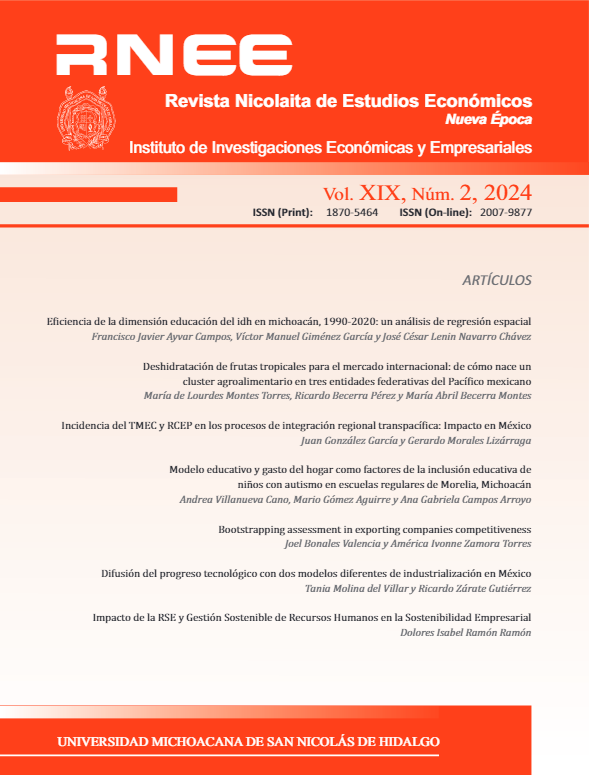Educational model and household spending as factors of the educational inclusion of children with autism in regular schools in Morelia, Michoacán
DOI:
https://doi.org/10.33110/rnee.v19i2.360Keywords:
Autism, regular schools, educational inclusion, public policiesAbstract
The objective of this article is to analyze how the educational model and household spending are related to the
educational inclusion of children with autism in regular schools in Morelia, Michoacán, since in Morelia 1 out of
every 115 people has Autism Spectrum Disorder. (TEA), where minors with this condition face problems such as
non-integration into the regular educational system, and the lack of specialized centers for their detection and
care, so families generally must do so with their own resources. The methodology used presents a mixed
approach, which consists of the application of a survey to know the diagnosis of the sector and an Ex ante
evaluation to verify the viability of a public policy proposal. The results indicate that the educational model and
spending at home are factors that influence the educational inclusion of children with autism and that there is no
public educational policy that encourages their inclusion. Which results in the lack of comprehensive
development of minors.
Downloads
Published
How to Cite
Issue
Section
License

This work is licensed under a Creative Commons Attribution-NonCommercial-NoDerivatives 4.0 International License.








